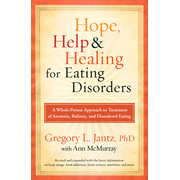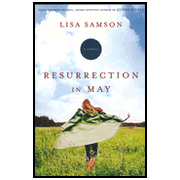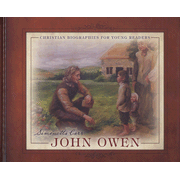Distractions are a constant struggle with homeschooling. I deal with them very imperfectly, but I have come to realize that there will always be distractions. We hold ourselves often to an ideal--our house should be clean and picked up, meals always made on time, shopping done, kids happy and quiet. But, I don't think that is the way life really is. One friend once told me that she had come to realize that at different phases of her life she needed to accept a different level of cleanliness in her house as well as modifying her own expectations of her cooking.
When we became moms, I think that most of us realized it would be difficult to wash clothes and linens as often as we did before we had kids. And meals, well, they went from several dishes to one main dish and maybe a side dish for a while if not forever. If you are like me, you've tried to be supermom and do everything. It's very hard at times to balance our expectations, our husband's expectations of us, and our children's needs and their expectations. I haven't quite figured this part out yet and I am definitely a work in progress so I don't feel that I can adequately address it. But, I bring it up, just to say that if you're in this boat--so am I. In my mind I know that I cannot do it all. But, there is a battle going on in my mind that tells me I have to or else I won't be good enough. Lies. My worth is not in how perfectly I do things. It is not in what I do or don't get done. My worth lies only in Christ. That is the truth that I often lose sight of. This morning our pastor spoke of the difference between promises and expectations. Promises are kept and are not about us. They are made to others. Expectations on the other hands are almost entirely self centered. They are about us and what we want--what we expect. I'm realizing that's an important distinction. We have promised to love and honor our husbands and take care of our families (though that one is unspoken). We do our best to do that. Sometimes we will fall short of others expectations and we have to trust that to God and trust His love for us over the love of others who are imperfect just as we are.
This idea that we have to be supermoms only becomes intensified when we begin to homeschool. More on our plates and less time to do it. I remember reading in one of Cynthia Heald's studies that God knew her heart and that she needed to have 3 children in 3 years. It was God's best for her because it drew her to Him. Homeschooling is one of the most humbling things for me. I realized when I became a middle school teacher that God had for me to become a teacher because it brought out all of my weaknesses. I had to depend on him. Homeschooling is very similar for me. I wish I could say that every day is a step forward for me. Sometimes it's one step forward, two steps back and sometimes two steps forward, and one step back.
This year as I've transitioned to two full-time homeschooling students and one 2 1/2 year old to keep an eye on, I've been adjusting my own expectations and what I get done. I've broken down my responsibilities to the basics that I have to get done now: laundry and cooking, floors cleaned. All other cleaning has been cut down a lot. And I'm really working on having the kids learn to pick up after themselves. But, we don't have the same expectations of Eli, our youngest. As my pastor's wife has told me--these years when they're all so young are hard! There really is more work on us because they can't help us with it! So, we have to try and make things as simple as we can and not expect ourselves to be perfect. Sometimes we have to adjust our expectations even of how much schooling we can get done as well. Choose simpler curriculums and not do a lot of extras. There will be time for such things, I believe. This year is much easier than last year as Eli has grown even one year older.
Homeschooling does take time and I am often distracted. But, I have seen over time that this is God working in me as much as he is in my kids. I need to grow in my patience and my focus and my self discipline. But, it's important that I not condemn myself. Some days I do well and other days I don't.
With all of our struggles with distractions, it's easy for me to conclude sometimes that our children might be better off in school. But, there are a lot of reasons I believe that they wouldn't be. The biggest one for me is that my children wouldn't get to be kids--they have to grow up so fast in school (one of the preschoolers in Sami's public PK class liked Michael from the Halloween movies on Halloween ?!). Autumn and Sami are so sensitive and I realize how much they would probably get bullied. Young girls do need to learn to stand up for themselves, but they can do that when they're strong enough. The wounds from K have stayed with me all my life. The school would be teaching her what's right and wrong, not me. I wouldn't always even know what had been taught. And as for the friends they'd have--that's as much a blessing as a curse so to speak. My girls are learning to include everyone and play with children of different ages. And I'd also have to juggle getting them to and from school and doing extracurricular after school and on weekends (whether public or private) which would really steal from our family time and from the time that my husband gets with our kids since he works a lot.
Private school has different challenges than public school. Often the academics aren't as strong (even at the strongest ones here). And grades aren't always fairly given--parents expect A's. Children are expected to be cushioned and the students I taught expected A's and also didn't know what to do when they were faced with a challenge. And you have the other extreme of being around kids who can afford a lot of things when your own family can't. That can be hard. That's how I grew up. The people around me were a lot more well of than we were and made comments about my clothes--I wish we'd had uniforms at my public school growing up ;).
No schooling option is perfect and I believe that every family makes the best choices they can for their children and for their families. Homeschooling is not always the best answer for families. For ours it is for this time. If God laid it on our hearts to put our children in school, then we would do it. I have friends whose children are in public and in private school and they are doing well! I rejoice that they are! And at the same time, I believe that homeschooling is right for my children. I hesitate to say "for now" because I hope that it will be for a long time, but as I've listened to my older and wiser friends who've gone before me, I've learned that there may be a time when God directs us otherwise.
I think distractions are a part of this life. Whether you are homeschooling or not. The decisions we have are when to ignore them, how to cope with them, and when to deal with them. But, I think they're here to stay, so we can't let them defeat us!








